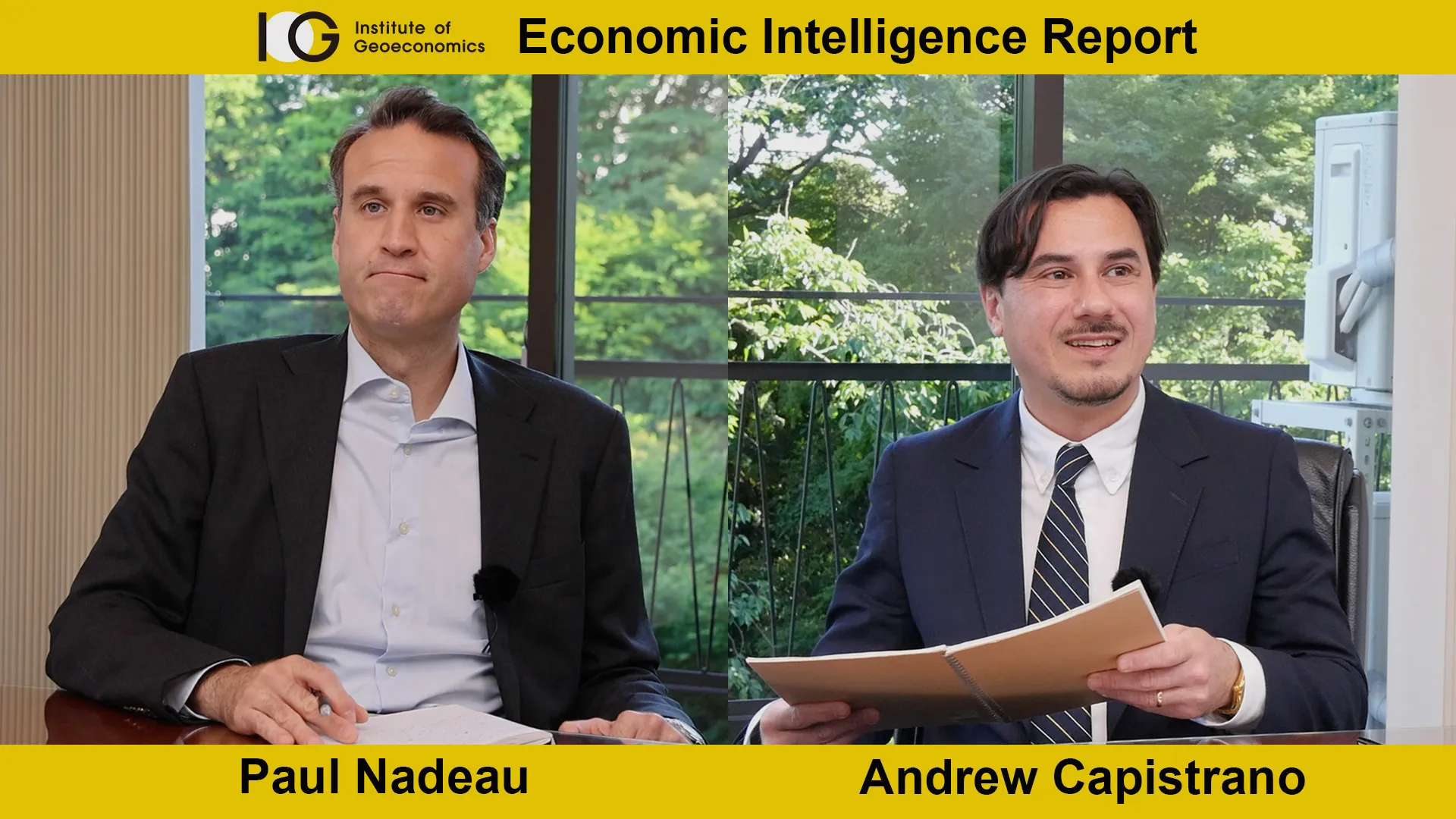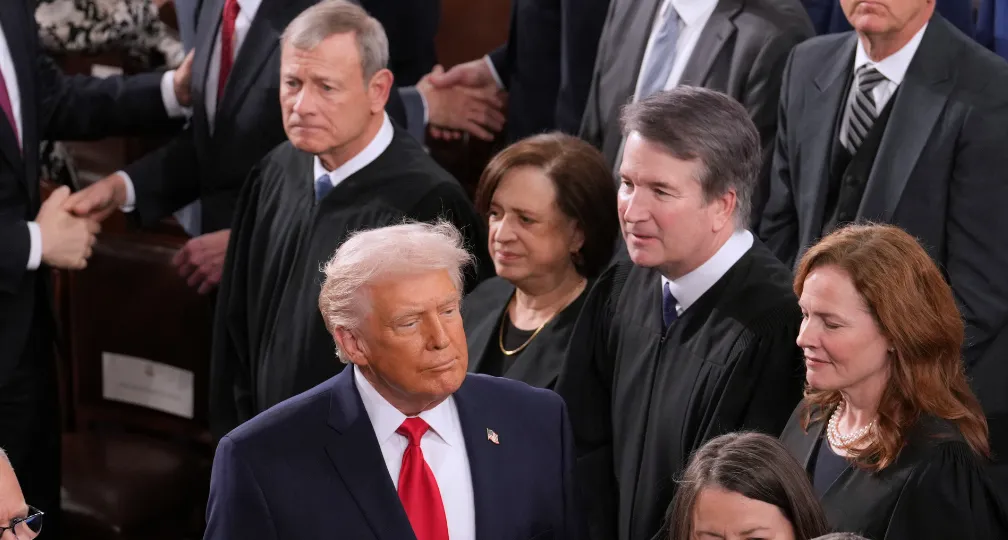IOG Economic Intelligence Report (Vol. 3 No. 2)

The latest regulatory developments on economic security & geoeconomics
Operation Prosperity Guardian: On January 11, the United States and United Kingdom began Operation Prosperity Guardian, a series of retaliatory strikes against Iran-backed Houthi targets in Yemen, following a series of drone and missile attacks on commercial shipping in the Red Sea launched by Houthis following the beginning of Israel’s attacks on Gaza. The Red Sea is a crucial route for international trade and while the Houthis have said that their attacks are in retaliation for Israel’s actions in Gaza, the ships targeted frequently have no connection to Israel. Some shipping has been redirected to other routes, such as around the Cape of Good Hope in South Africa, while the cost of war-risk insurance for ships traveling the Red Sea has soared. Many tanker companies have halted their routes through the Red Sea, oil prices have risen above $80 since the beginning of the attacks, and container shipping prices have jumped 60 percent since the beginning of the year. Broader threats to global commerce are uncertain, given the low cost of shipping in consumer prices may make economic impacts for consumers muted.
Commerce Announces Antidumping Duties: On January 5, the U.S. Commerce Department announced antidumping duties of more than 450 percent on imports of tin mill products from China and duties of 6 percent on similar imports from Canada, Germany, and South Korea. The International Trade Agency (ITA) will next launch an investigation into material harm suffered by U.S. firms as a result of the dumping, and the duties will go into effect if the ITA investigation rules in the affirmative with a vote expected on February 6. The ITA found no evidence of dumping for imports from the Netherlands, Taiwan, Turkey, and the United Kingdom.
China Sanctions U.S. Defense Companies: China has sanctioned five U.S. defense companies (BAE Systems Land and Armaments, Alliant Techsystems Operations, AeroVironment, Viasat and Data Link Solutions) in response to U.S. arms sales to Taiwan. The sanctions are mostly symbolic since U.S. defense companies generally don’t do business with China, but the announced sanctions will freeze any property the companies have in China and will prevent Chinese entities and nationals from doing business with them.
China to Target EU Liquor Imports: China announced it would launch and investigation into whether liquor imports from the European Union, focusing specifically on French brandy, are being dumped into China. The announcement is considered to be made in retaliation for the EU’s similar investigations into biofuel imports from China and whether Chinese manufacturers of electronic vehicles are benefiting from unfair subsidies.
Personnel changes at USTR: Greta Peisch is stepping down as USTR’s general counsel with her deputy, Juan Millán, stepping in as acting general counsel. Peisch played a key role in talks between the European Union and United States on U.S. steel tariffs. Deputy U.S. Trade Representative Sarah Bianchi, who was heavily involved in the negotiations on IPEF, is reportedly planning to step down, and Jayme White, deputy USTR for Europe and the Americas, stepped down on November 1, and chief of staff Heather Hurlburt is also planning to leave the agency to be replaced by Jamila Thompson, Amb. Tai’s senior advisor.
Analysis: What’s Missing in the Markets-vs-Governments Debate
The balance between governments and markets is one of the central debates of liberal democracy. The Fletcher School’s Dan Drezner, writing in Reason, and Henry Farrell of John Hopkins University writing on Substack, have a couple of pieces where they offer one of the recent and compelling instalments of this debate. Both pieces are worth reading in full and they both have a point – Drezner, because critics of neoliberalism have a lot of critiques but not much a solution; Farrell, because markets don’t have a solution either. The debate won’t be settled soon, not least of all because the political stakes involved means there isn’t a conventional “solution” that can definitively settle the question.
On one level, the issue is a practical matter about where to calibrate the balance between governments and markets, but at another level it’s a deeply political question that influences debates and the direction of government policy. Depending on where one stands, the turn towards free markets in the second half of the twentieth century is either responsible for unprecedented global economic growth or the hollowing out of middle class jobs, or simply bad economics. The problem for post-neoliberals is that the solution isn’t as simple as taming the forces that were unleashed by neoliberalism, because assuming neoliberalism was a choice misdiagnoses the problem and as result misdiagnosis the solution.
Globalization isn’t simply a matter of ideological preference, but a condition created by technology lowering the costs of things (transportation and communication) that were once prohibitively expensive – once those costs were lowered the invention of the shipping container and the information revolution, the barriers to more-fully globalized economies and greater financialization were broken down. Putting the toothpaste back in the tube means undoing a lot of things than simply can’t be undone, effectively asking to “uninvent” the internet. Whatever comes after the neoliberal moment needs to account for the fact that the private sector is a central actor, and even maybe the central actor.
Ideology enters the picture in the ways which governments choose to respond to these developments, but even here the choice isn’t so much between neoliberal government restraint or social democratic government activism. Innovation and markets simply move more quickly than government policy can keep up, creating a world where the private sector will “ask forgiveness rather than beg permission”. In other words, it’s not a question of should but a question of whether; not should markets or government provide an answer to the big economic and social questions, but whether they’re even able to and in what realms. That shouldn’t mean that governments stay out of the picture – at the very least they have a role in helping allocate the economic gains of globalization – but it should put a finer point on the fact that the task before governments is much more complicated and more challenging than simply more activism.
This isn’t necessarily bad news for proponents of an active government. For one thing, innovation is more expensive than ever (some predict that future semiconductor fabs may cost as much as $20 billion each) and governments should want the private sector to pick up the bill for that so governments can continue to pay for the things that the private sector won’t or shouldn’t, like social programs and national defense. Even if policymaking is slow (and it should be slow to allow for careful deliberation and the input of various stakeholders), rules matter by imposing costs on business activity which shape decisions. It’s also important for governments to hire more specialists in the kinds of fields that are going to be most critical for innovation, not simply people who have a familiarity with burgeoning technologies but often actual engineers with deep practical understanding of these. People with knowledge that can prepare their bosses for hearings and meetings to ask the right questions and interrogate the issues around these technologies more fully. Developing technologies might be complex, but so is U.S. tax policy or health care or any number of other fields, and the government has developed expertise to help regulate these areas as well. By that same token, it will also be more important for the private sector to hire people who understand domestic politics and geopolitics, because domestic politics and government decisions will continue to impact the way firms do business and firms need to be able to understand those developments.
Trying to figure out the right balance between governments and firms an interconnected world is still an important debate, but it’s going to be half complete as long as the role of the private sector is on the sidelines of these discussions. Understanding that means governments should consider turning back to Susan Strange’s work and her idea the difference between states isn’t between those that are strong or weak but between the “sleepy and the shrewd”, that the advantage will go to states who are alert and adaptable. It’s true that governments may not be as decisive as they once were, that markets will never have all the answers, and that decisionmakers are short of ideas on what comes next. But understanding that the dilemma rests beyond settling the balance between states and markets is the first step to finding a way forward.
Disclaimer: The views expressed in this IOG Economic Intelligence Report do not necessarily reflect those of the API, the Institute of Geoeconomics (IOG) or any other organizations to which the author belongs.
API/IOG English Newsletter
Edited by Paul Nadeau, the newsletter will monthly keep up to date on geoeconomic agenda, IOG Intelligencce report, geoeconomics briefings, IOG geoeconomic insights, new publications, events, research activities, media coverage, and more.


Visiting Research Fellow
Paul Nadeau is an adjunct assistant professor at Temple University's Japan campus, co-founder & editor of Tokyo Review, and an adjunct fellow with the Scholl Chair in International Business at the Center for Strategic and International Studies (CSIS). He was previously a private secretary with the Japanese Diet and as a member of the foreign affairs and trade staff of Senator Olympia Snowe. He holds a B.A. from the George Washington University, an M.A. in law and diplomacy from the Fletcher School at Tufts University, and a PhD from the University of Tokyo's Graduate School of Public Policy. His research focuses on the intersection of domestic and international politics, with specific focuses on political partisanship and international trade policy. His commentary has appeared on BBC News, New York Times, Nikkei Asian Review, Japan Times, and more.
View Profile-
 The Supreme Court Strikes Down the IEEPA Tariffs: What Happened and What Comes Next?2026.02.27
The Supreme Court Strikes Down the IEEPA Tariffs: What Happened and What Comes Next?2026.02.27 -
 Fed-Treasury Coordination as Economic Security Policy2026.02.13
Fed-Treasury Coordination as Economic Security Policy2026.02.13 -
 What Takaichi’s Snap Election Landslide Means for Japan’s Defense and Fiscal Policy2026.02.13
What Takaichi’s Snap Election Landslide Means for Japan’s Defense and Fiscal Policy2026.02.13 -
 Challenges for Japan During the U.S.-China ‘Truce’2026.02.12
Challenges for Japan During the U.S.-China ‘Truce’2026.02.12 -
 India and EU Sign Mother of All Deals2026.02.09
India and EU Sign Mother of All Deals2026.02.09
 Orbán in the Public Eye: Anti-Ukraine Argument for Delegitimising Brussels2026.02.04
Orbán in the Public Eye: Anti-Ukraine Argument for Delegitimising Brussels2026.02.04 Fed-Treasury Coordination as Economic Security Policy2026.02.13
Fed-Treasury Coordination as Economic Security Policy2026.02.13 India and EU Sign Mother of All Deals2026.02.09
India and EU Sign Mother of All Deals2026.02.09 When Is a Tariff Threat Not a Tariff Threat?2026.01.29
When Is a Tariff Threat Not a Tariff Threat?2026.01.29 Navigating Uncertainty in U.S. Space Policy: Decoding Elon Musk’s Influence2025.04.09
Navigating Uncertainty in U.S. Space Policy: Decoding Elon Musk’s Influence2025.04.09













